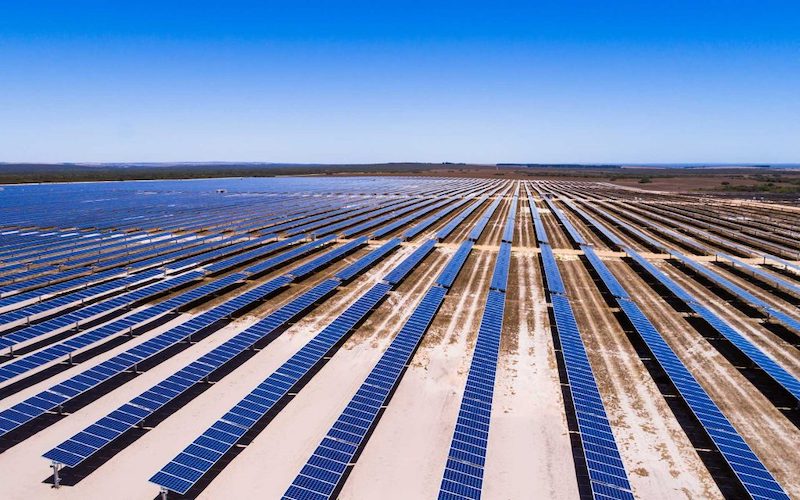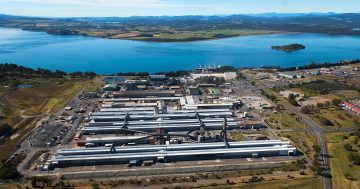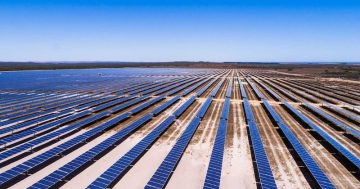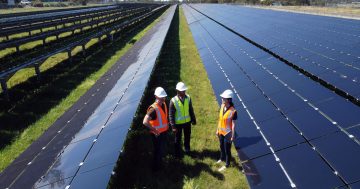
A large-scale solar farm – Aussie tech we now import. Photo: Australian Renewable Energy Agency.
In the dry economic gulch that successive governments have camped the country in, picking winners is howled down as a recipe for wasting vast amounts of taxpayers’ money.
That’s been part of the typical orthodox response to Prime Minister Anthony Albanese’s interventionist approach to turbo-charging the energy transition.
The PM has flagged that the government will actively support the development of clean energy technologies – solar, batteries, green hydrogen and green metals – and their retention within Australia under a new Future Made in Australia Act.
It’s a response to what has already been happening overseas, particularly in the US under the Biden Administration, but also in Europe and South Korea.
If Australia did not do likewise, capital and expertise would be sucked away from Australia and the country left in their wake, putting into doubt the ability to leave fossil fuels behind and become the green energy superpower many have talked about.
Leaving it to the market may suit the purists, but the reality is Australia would not be on any kind of level playing field and incapable of competing.
It does play into traditional Labor hopes of reviving a manufacturing industry that some say is a pipe dream, but the government’s view is that new tech, including robotics, will make it a viable proposition.
Realising the attacks on what may be seen as a regressive policy, Albanese says he is not embracing protectionism or abandoning open and free markets but adjusting to a new reality and in the national interest, citing the risk in relying on trading partners (read China) in an uncertain world.
We’ll learn more in the May Budget, but the PM is talking about a coordinated package of existing and new measures and incentives to drive Australian industry, particularly green energy, and give it “sharper elbows” in this new competitive environment.
The Opposition response has been predictable, but it was happy to funnel plenty of taxpayer dollars into carbon capture projects that would keep fossil fuels in use despite their continuing lack of success.
Labor has also had to wear criticism that the country was not making the energy transition fast enough to keep the lights on as coal plants closed, or doing enough to meet its 2030 emission reduction targets.
There has also been a falloff in renewable energy projects and spending.
The new approach should be the reboot required to accelerate the transition, incubate innovation and keep it here in Australia.
Australia has been good at inventing things but terrible at commercialising them. The now ubiquitous rooftop solar panel was pioneered at UNSW, but much of that expertise went to China and the rest is history.
But while there will be much debate among economists about whether a more activist government approach is the right one, it’s worth remembering why the world needs to switch to clean energy.
This month it has been reported that the global surface and ocean temperatures continue to rise, presaging the kind of supercharged climate change that threatens the viability of the planet we all call home.
The energy transition is not some academic or economic exercise but an act of survival.
It’s not something that can be left entirely to the “invisible hand”.
Yes, the government will need to be strategic, savvy and discerning, but the PM is right to seize the initiative, and many in industry and science will welcome the certainty and direction it brings.
Original Article published by Ian Bushnell on Riotact.











